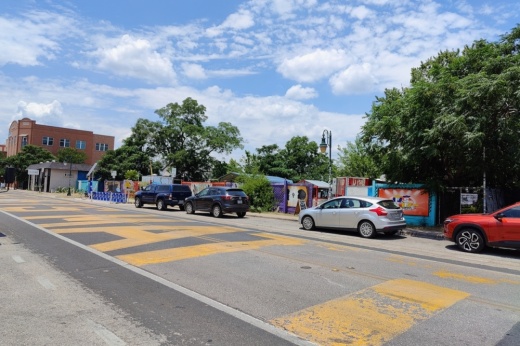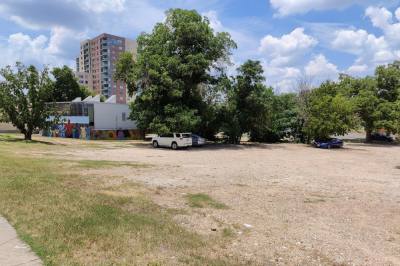The big picture
The AEDC entity was created by city officials in 2020 to help manage local economic and cultural preservation initiatives. It's overseen by representatives with the city; local real estate firms; chambers of commerce; higher education institutions; and workforce, preservation and transportation groups.
Now called Rally Austin, the real estate nonprofit aims to continue supporting community-centered cultural and economic projects, such as the redevelopment of "Blocks 16 and 18" on East 11th Street, future caps and stitches over the rebuilt I-35, and a public-private development partnership adjacent to the rebuilt Austin Convention Center.
Rally Austin also works to maintain historic or iconic cultural spaces through the Austin Cultural Trust. It previously helped negotiate a new lease for The Hole in the Wall, a longtime staple on the Drag, and may assist other local businesses in similar ways.
The nonprofit has also moved some Austin cultural bond funds to upgrade East Austin's Millennium Youth Entertainment Complex, open performance space at the city's development center and expand the Austin Playhouse.
Quote of note
"We really feel like the name Rally Austin makes you ask, ‘What are they rallying for?’ We’re rallying for our mission, our vision to create affordable community benefits in Austin, related to our mission statement," President and CEO Theresa Alvarez told Community Impact.
Zooming in
Rally Austin is moving closer to the redevelopment of Blocks 16 and 18, located within Austin's African American Cultural Heritage District on East 11th next to the African American Cultural and Heritage Center as well as the Historic Victory Grill.
Plans to bring affordable residential, retail and venue spaces; a new community center; and other amenities to vacant city lots have been in the works for more than two decades. The project is supported by the city, Rally Austin, the Austin Housing Finance Corp. and the Urban Renewal Agency responsible for local planning efforts around East 11th and East 12th streets.

Two project outlines are now being considered: a plan from the Austin Revitalization Authority and Legacy Commercial Real Estate, and a plan from the Guadalupe Neighborhood Development Corp. and Servitas.
The city Urban Renewal Board is expected to recommend one of the two in the near future, and City Council could then approve a final plan in the coming months.
While the project has taken years to come together, Alvarez said Rally Austin had successfully gotten local buy-in for the initiative.
"I’ve been in East Austin for 31 years, and I’ve seen the community get engaged, get frustrated and disengage," she said. "I would say there was resistance in the beginning because they were like, ‘Who are you? What are you doing? We’ve been told this story before.’ So just being able to re-engage, putting together stakeholder groups, the evaluation committee, I consider that a big success."
What's next
Alvarez said Rally Austin hopes to build on its cultural support work following past investments in The Hole in the Wall and Austin Playhouse.
The organization is slowly working its way through an extensive list of venues and businesses that have asked for financial assistance, but the need far outstrips available resources. Alvarez said dozens of previous applications included requests of more than $300 million total, with just about $20 million in aid to give out.
"Unfortunately, I’d love to say, ‘Oh, other people can apply. There’s more money.’ But there’s just not," Alvarez said. "What I would love to see happen is council continuing to invest in the cultural trust that we’ve created. I’d like to see private dollars available so that we could get to a point where we’re able to accept ongoing applications."

"There’s a lot of people in this city and the region working on our affordability issues, and I really feel like the way to get this done is to rally around whatever best outcome we’re all trying to achieve—which I know is easier said than done," she said.






